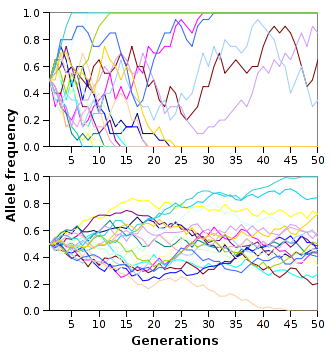
The adaptive value represents the combined influence of all characters which affect the fitness of an individual or population.

The adaptive value represents the combined influence of all characters which affect the fitness of an individual or population.
Adaptive value is an essential concept of population genetics. It represents usefulness of a trait that can help an organism to survive in its environment. This heritable trait that can help offspring to cope with the new surrounding or condition is a measurable quantity. [2] Measuring adaptive value increases our understanding of how a trait helps an individual's or population's chances of survival in a particular set of conditions. [3]
The adaptive value can be measured by contribution of an individual to the gene pool of their offspring. The adaptive values are approximately calculated from the rates of change in frequency and mutation–selection balance. [2]
